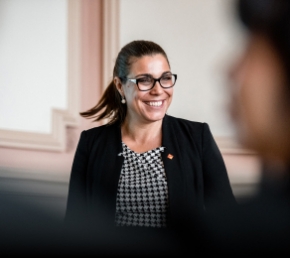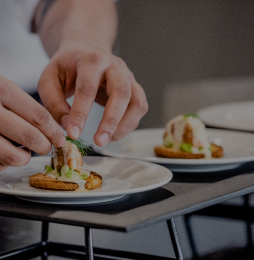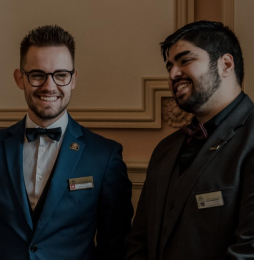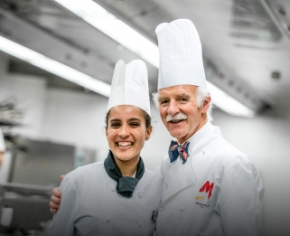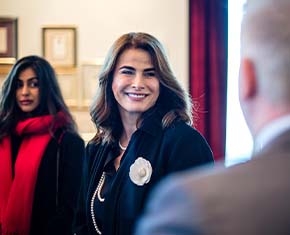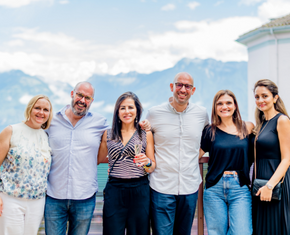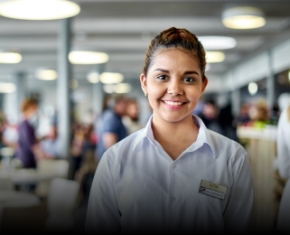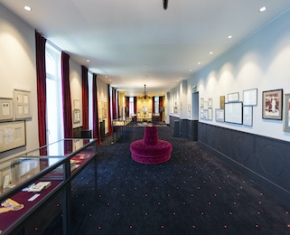- About
- Schools
- Lifelong Education
- News & Events
- Community
Culinary Personalities Series: Henrique Yukio Ide
#Student Life
Culinary Personalities Series: Henrique Yukio Ide
If there is one thing we can be certain of after teaching culinary students for so many years is that no culinary student is alike!
In this series, we spend some time with the current Culinary Arts Academy students and learn more about how they found their passion for the kitchen, their cooking styles and of course what makes them unique! At the end of the article you will find a recipe feature from the chef in training.
Country of Origin: Brazil
Describe yourself in 3 words: Perfectionist, intuitive and committed
When did you know you wanted to be a chef?
The desire to become a chef appeared to me when I first started cooking and experimenting in the kitchen and this desire only increased when I found that this was something that I truly enjoyed doing. When I was not cooking, I was looking at cooking videos, recipes, and culinary books. Personally I find the culinary field as an endless source of inspiration that pushes your creativity and desire for perfection. Day after day my ambition to become a chef only develops further.
If you were to open a restaurant what type of food would you serve?
Without a doubt I would serve food that I enjoy eating. I would serve something modern with simplicity inspired by classical food. The outcome would be my interpretation of Brazilian cuisine combined with all my acquired knowledge and experience. High quality seasonal and local ingredients would drive my concept.
What is your favourite cooking utensil?
A sharp chef’s knife. With this utensil creativity is limitless! When handled by a mastered hand, a knife offers consistency, dexterity and mastery.
What has been your most difficult cooking skill to master?
Personally, the most difficult skill to master is consistency combined with perfection. For example, working with a humble ingredient such as a simple egg and making a perfect omelet every single time can be a challenge. Along with recipes, mastering a cooking skill requires years of practice and training.
Tell us about your biggest cooking disaster.
My biggest culinary disaster happened when I prepared an amuse bouche. Basically the amuse bouche was composed of foie gras and pear. In order to cook the pear I had to poach it with spices and sugar. However instead of sugar, I mistakenly used salt! After the pears were ready, I tasted them and of course they were completely over salted and totally inedible!
How do you think the next generation of chefs will change the culinary field?
I predict that this next generation will have a better understanding of cooking and therefore bring more precision and consistency to the culinary field.
Henrique’s Recipe Feature: Marinated Scallops with Granny Smith Apple, Horseradish Panna Cotta and White Chocolate
Why have you chosen this recipe?
I remember doing this recipe in fine dining service at school where the weekly theme was fusion cuisine. I have chosen this recipe because it represents my cooking style: working with fresh ingredients and classical flavours with modern techniques. In addition, I tried to construct a dish that in every bite you could have a mix of textures and flavours: the firm texture and sweet taste of a fresh scallop, the crunchiness and acidity of a granny smith apple, the spiciness and the melting textures from the panna cotta, the sweetness and smooth taste of white chocolate, and the floral and anise flavour from flowers and chervil.
|
Ingredients |
||
|
Scallops |
Horseradish Panna Cotta |
|
|
White Chocolate Powder |
Chervil Oil |
|
|
Decoration |
Preparation Method
Scallops
Cut scallops into small pieces, combine with apple and season with herbs, hazelnut oil, apple cider vinegar, lemon zest, salt and pepper
Horseradish Panna Cotta
Soak gelatin leaf in cold water for 5 minutes. Bring buttermilk to a boil and infuse with horseradish. Mix in gelatin and strain into a tray lined with plastic. Freeze and cut squares of 6x6cm
White Chocolate Powder
Melt chocolate over a water bath. In a food processor mix melt white chocolate with Maltodextrin until it forms a powder.
Chervil Oil
Blanch chervil in boiling water. Strain and blend with oil. Strain over a cheese cloth
Dressing
Place scallops on the bottom of the plate.
Cover with the frozen horseradish pannacotta square and let it thaw.
Place white chocolate powder and chervil on top.
Garnish with edible flower petals, chervil and dill leafs
#Student Life

